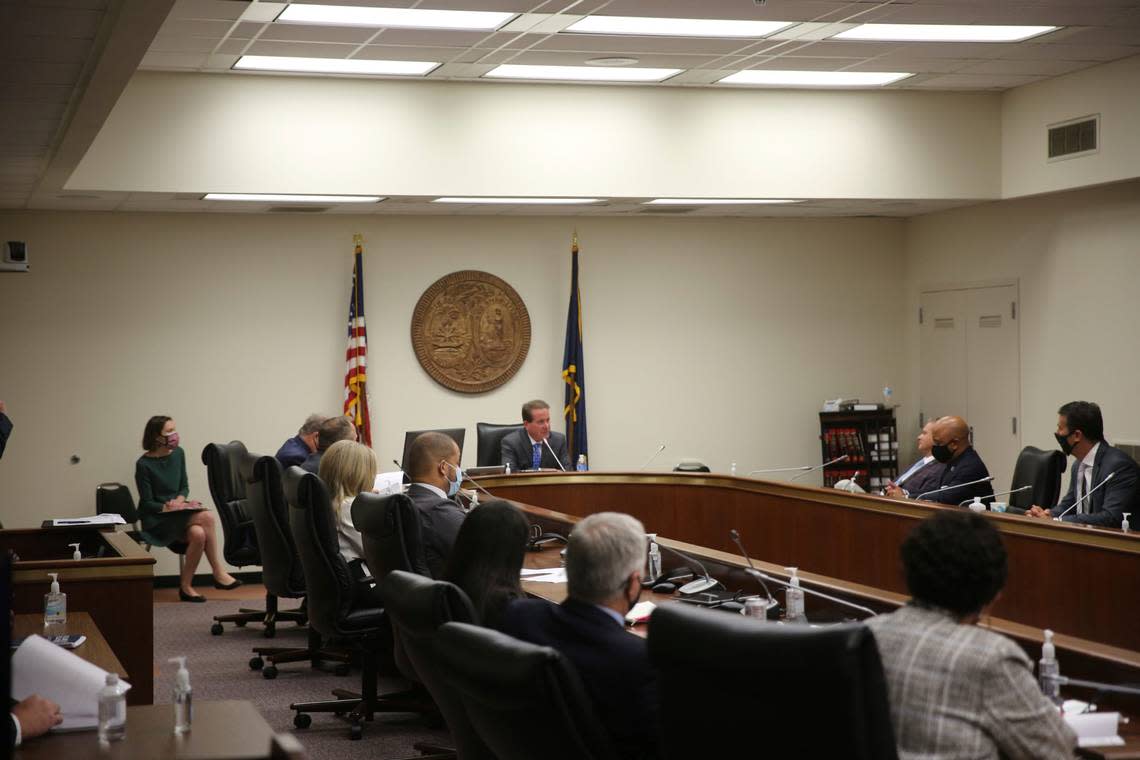SC judge exits Supreme Court race amid questions about family judicial power
Amid questions about whether one family would have too much power in South Carolina’s judiciary, state Judge Maite Murphy has dropped out of a five-way race to fill an upcoming vacancy on the S.C. Supreme Court.
Murphy, an at-large state judge, sent the state Judicial Merit Selection Commission a letter Wednesday withdrawing from the race, a commission spokeswoman said Thursday. The commission screens judicial candidates.
Murphy’s husband is state Rep. Chris Murphy, R-Dorchester, who is the chairman of the House Judiciary Committee, an influential committee through which much legislation concerning state laws flows. The lawmaker’s brother is Michael Murphy III, a Dorchester County family court judge.
Elections of state judges, including Supreme Court candidates, are voted on by the 170-member Legislature, and a candidate whose spouse is chairman of a powerful committee could have an advantage in rounding up votes from other lawmakers.
Neither Judge Murphy nor Chris Murphy could be immediately reached for comment.

Murphy’s departure from the race leaves four candidates: Court of Appeals judges David Garrison “Gary” Hill and Aphrodite Konduros, both of Greenville County, and Stephanie Pendarvis McDonald of Charleston. Also running is Administrative Law Judge Ralph K. Anderson III, of Columbia.
Ordinarily, most Supreme Court justices have served on the nine-judge Court of Appeals, which is the state’s second-highest court.
Of the five current Supreme Court justices, four previously served on the Court of Appeals, which usually handles appeals from trials and issues in lower courts. It’s rare — but not unheard of — for a state judge such as Murphy to leapfrog the Court of Appeals and be elevated directly to the Supreme Court.
The vacancy will be created by the age-related retirement of Associate Justice Kaye Hearn on Dec. 31.
Hearn, who turned 72 earlier this year, was due to retire July 31 but last year she ran unopposed and won a new 10-year term as a justice. Judges and justices are allowed to stay in place through the calendar year in which they turn 72.
One wild card in the Supreme Court race is that many lawmakers and lawyers question whether Hearn, one of only two women ever to serve on the Supreme Court, should be replaced by a man or whether a woman should continue to hold that spot.
Public hearings on Supreme Court and other judicial candidates begin Nov. 14.
